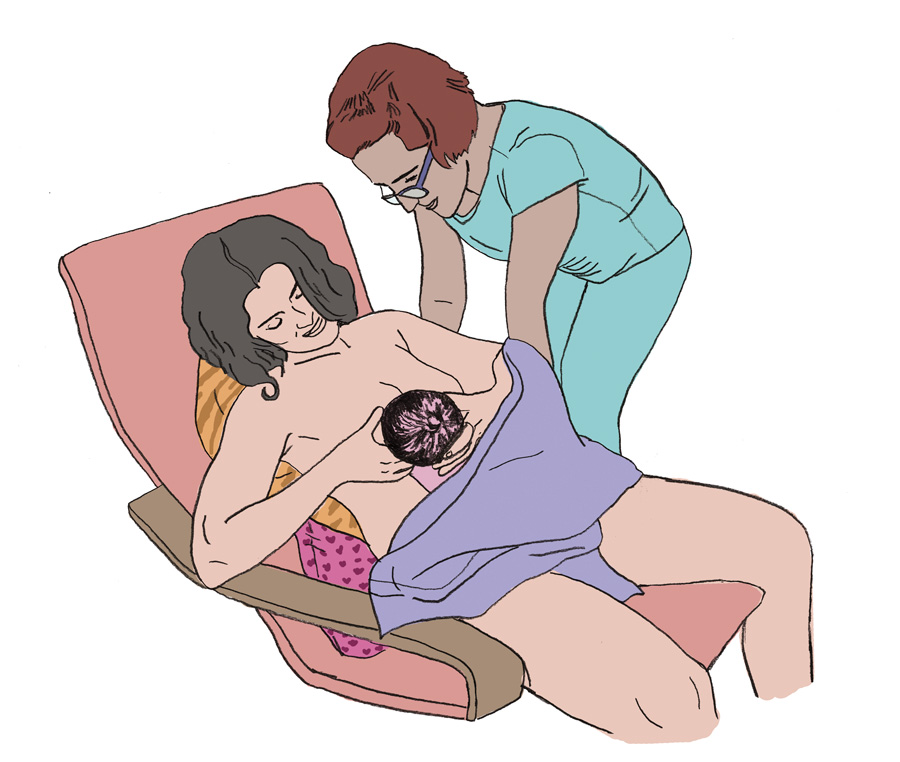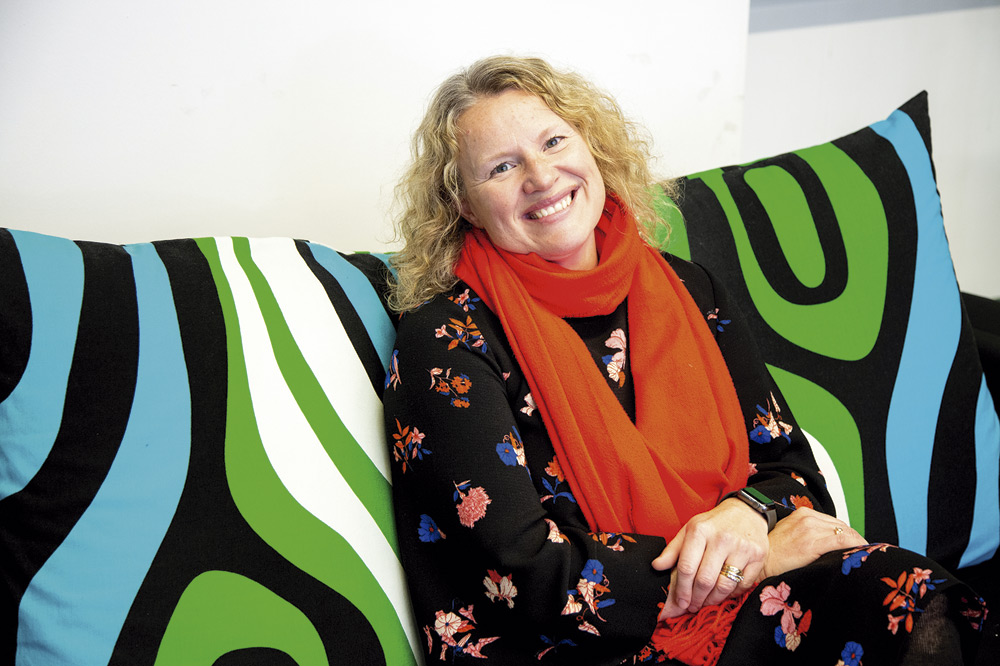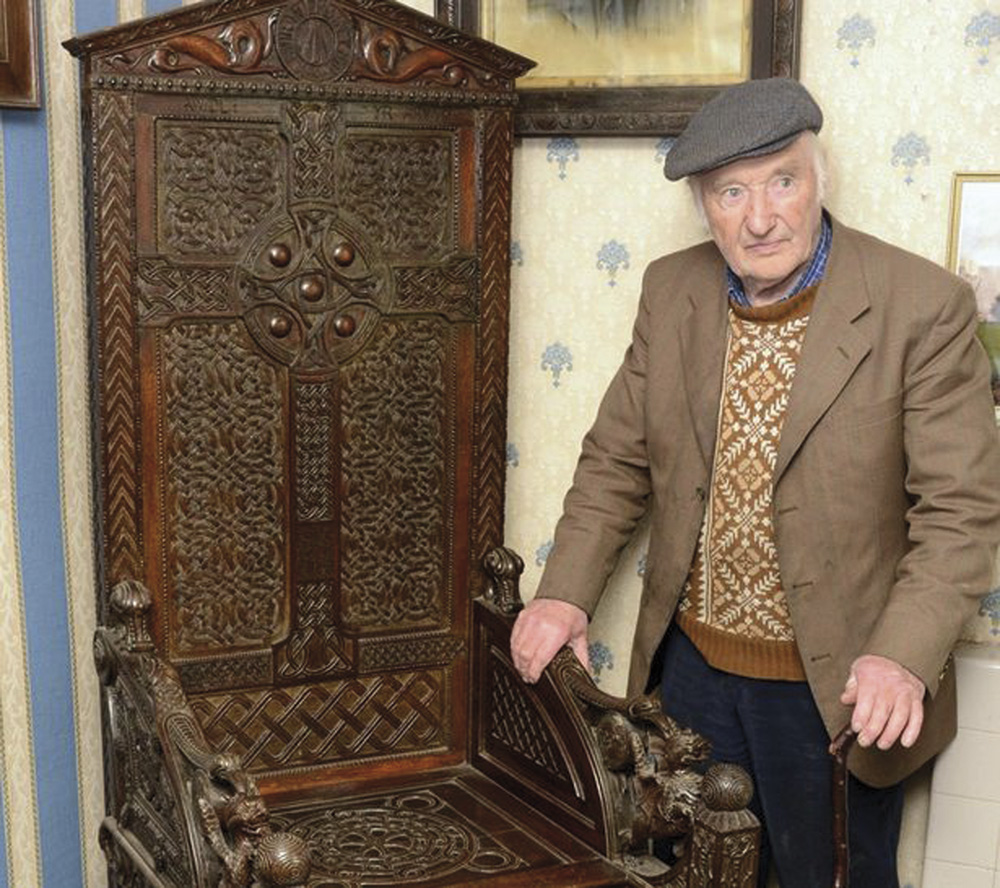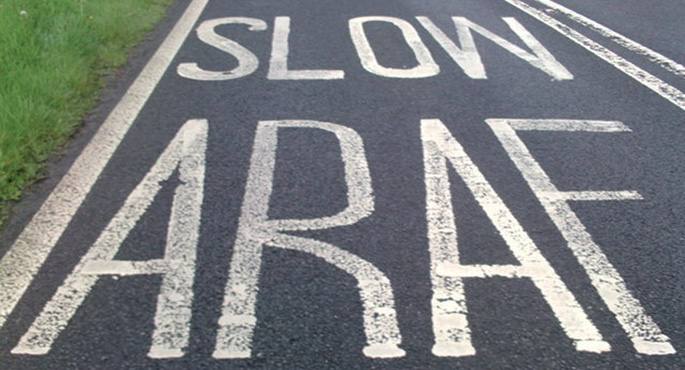It is not the same to give birth in Galician as in English
- It's not the same to understand the child what the pediatrician says he doesn't understand it. It is not the same whether it is a mental illness as if it is a health professional in the original language or in the second language. Speaking Wales suffer from such situations as the Basques.

The woman is rushed to the operating room of the hospital. She is pregnant and childbirth is not easy to foresee. The woman who is about to be a mother has a young man on her left. Hold a tube in the woman's hand. It does so in Galician, not in English. The pregnant Heledd ap Gwynfor will never forget that man: “I was looking forward to being made Welsh, I realized I was getting calmer and calmer thanks to him. I could express what I felt more easily than with the midwife.” But working hours are working hours, and when we gave birth, all the workers next door left and new ones came. “The young man told me I had to leave. My heart beat me, because while I was speaking I was calmed.”
The British Guardian, for its part, took up this example on 20 September in Bilbao. More examples of what we are going to tell are shown below. In fact, with the help of Wales’s Language Policy, health centres have launched a campaign for speaking Wales to be served in their language. Aled Roberts, the Welsh Government's Best Language Policy Representative, has pointed out that Welsh speakers are suffering and that some may be at risk if health facility professionals do not speak in their home language. He says: “If the original language is Welsh, for him it is necessary that it be done in that language, it is not an option.” Roberts talks about the need and not about the patients' linguistic rights, but about putting their own health at risk. The Guardian lists the events of talking wales and the opinions expressed by the professionals.
Children who do not understand anything
Mrs. EnlMiles was also experiencing a difficult birth. He was frightened to understand the doctor who was in danger of dying: “But the midwife told me about Welsh. It was wonderful. He explained the situation to me so I understood it and reassured me. Being able to talk about the situation in my language was special.”
Professional Tomos Owens works with 90% of patients in Welsh. This worker has observed that parents appreciate the presence of someone able to talk about Welsh with their children because: “It’s harder for kids to approach you and let you explore if you do them in a language they don’t understand.” Language representative Aled Roberts has raised another issue: if health workers do not know the language of the child and parents are interpreting, what about the measures prepared to protect the child?
He was caught in pneumonia and stopped working on a lung. Wales's sister Sian Elin Williams was taken to the hospital, about a hundred kilometers from her home. Her sister says: “He was young then, in our house we talked about wales, it was so important for him to tell the doctor how he felt in his language. He was far from home, but doing it in Galician made him feel more comfortable, doing it in the language that was foreign to him would have been something else.”
Manon Williams leads nursing teams that care for cancer patients. It is clear that it is very important to talk about Welsh to patients and relatives: “The information you are going to receive can be from many extremes. It is also very important that they receive bad news, that at that time they have the opportunity to talk about the situation in Welsh”.
Speakers with dementia
What about patients with psychological and psychiatric problems? Language is an essential tool for diagnosing and treating their diseases. However, what importance is given to health? Psychiatric nurse Edwin Humphrey has met patients who have not been satisfactorily diagnosed by dementia tests. “A woman has recently been tested for dementia by a doctor and the diagnosis has been very poor. The research concludes that dementia is advanced. I've talked to that patient, and I've found that the diagnosis is better than what it says. We've done the test again, this time in Welsh, and it's given a better result." Humphrey, in addition to a psychiatric nurse, is a musician. She realizes that when you put music from singers in English, talking wales react less: “On the other hand, when you put Welsh songs, they are turned on their faces right away.”
Glenda Roberts has dementia. He says he has realized that he speaks English in his second language, getting worse: “I am translating into the original language.”
How many healthcare professionals do Welsh know?
They don't know how many they are, they haven't counted. According to Aled Roberts, the differences between areas of Wales are considerable. In some areas of health care almost all workers can do a little bit of wales, in others neither one in five knows. There is no detection system for talking Wales workers, and the same is true for talking Wales. Thus, language and speakers continue in the shadow.
Little research, less awareness
In the 2017 UPV/EHU Summer Courses, in the Health and Language Days, the psychiatrist Leire Erkoreka spoke, among others. He referred to the importance of making the patient in his own language in psychiatry and psychology. On the other hand, he acknowledged that there are very few publications on the subject at the international level, and that he has mainly found things related to schizophrenia. After examining the scarce material, it concluded that: “Patients have more severe psychotic symptoms in the mother tongue than in the second language. Neurologists and linguists don't know very well where each language is grown in the brain, but it seems that it's a reasonable hypothesis to link the mother tongue to emotions and that the second language binds us to reality. When we use the second language, we pay more attention to the transmission of language, so we are more connected to reality.
Another work says that our memories are linked to emotions and that those emotions are linked to language. Can you use the second language to reclaim those memories? It seems that the use of the second language can hide emotions, so the therapist can use the patient’s second language to better extract traumatic memories.”
Leire Erkoreka worked at the Bizkaia Mental Health Network and gave the following two data: In the Bizkaia Mental Health Network, 38% of the adult psychiatric care staff are at Euskera level B2 and 47.6% of the staff working with children. Level B2 does not guarantee that consultation takes place in Basque.
He should be entitled to health care in Basque or Galician. That is not always the case. Where necessary, neither.
Galesi buruz umorez aritzeko twitter kontuan (Welsh Bollocks) aurkitu dugu esaldia. Hizkuntza bakarra jakiteak dituen “onurak” deskribatu dituzte.
"Ras yr iaith" Galeseraren aldeko Korrika abiatuko da asteazkenean. 25 herri zeharkatuko ditu iparraldetik hegoaldera, eta ostiralean amaituko da. Bigarren edizioa du ekimenak, aurrekoa orain bi urte 2014an egin zuten.
Orain gutxi jakinarazi dute Galesen ere lehen aldiz egingo dutela "Korrika" ekainean, Ras yr Iaith izenpean (hizkuntzaren lasterketa). Ekainaren 20an izango da, ostiralean eta 22 kilometroko ibilbidean bederatzi herritatik igaroko da.
New research has been found in Wales, including young people being asked about the use of Welsh. Half of the young people, between the ages of 16 and 24, say they are able to speak of Galicians fluently. One in three uses the Welsh with their friends.
Carmarthenshire is the... [+]
’Ras yr Iaith’ da galeseraren aldeko lasterketaren izena eta lehen edizio hau behintzat, 3 egunekoa izango da.
"Zergatik txiokatzen dute euskaldunek, galesdunok halako bi?" tituludun artikulua argitaratu du Rhodri ap Dyfrig Aberystwyth Universityko irakasleak bere blogean, euskara darabilten kontuen kopurua eta galesa darabiltenena berdintsuak direla kontuan izanda.
S4C galeserazko telebista kateak 2012ko azaroaren 2an ospatu zituen 30 urte antenan, ETBk baino aste batzuk lehenago.






















